Tool Search: Events by Grade
Events by Grade displays a count of behavior events associated with students (with an Early Warning Behavior GRAD score between 50 and 100) per student grade level.
This report is only available for district users who have purchased the Campus Analytics Suite.
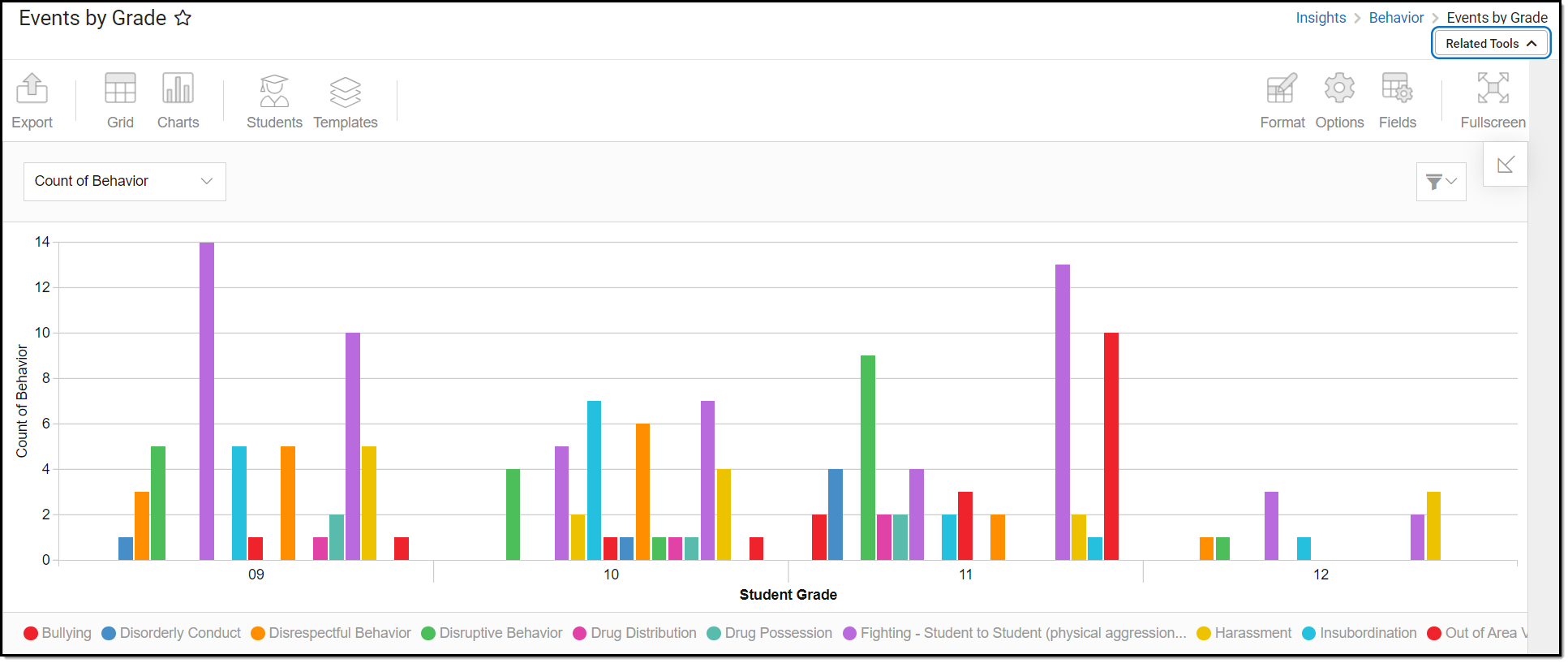
To view the chart, you must have at least Read tool rights for Events by Grade. You must also have calendar rights assigned for any calendar(s) reporting data.
NOTE: Insights visualizations may contain PII and include data for tools a user may not have rights to access.
Understanding the Chart
Events by Grade displays a count of behavior events associated with students (with an Early Warning Behavior GRAD score between 50 and 100) per student grade level in the calendar selected in the Campus toolbar. Double-clicking a bar will show you a table detailing all the data that makes up that bar.
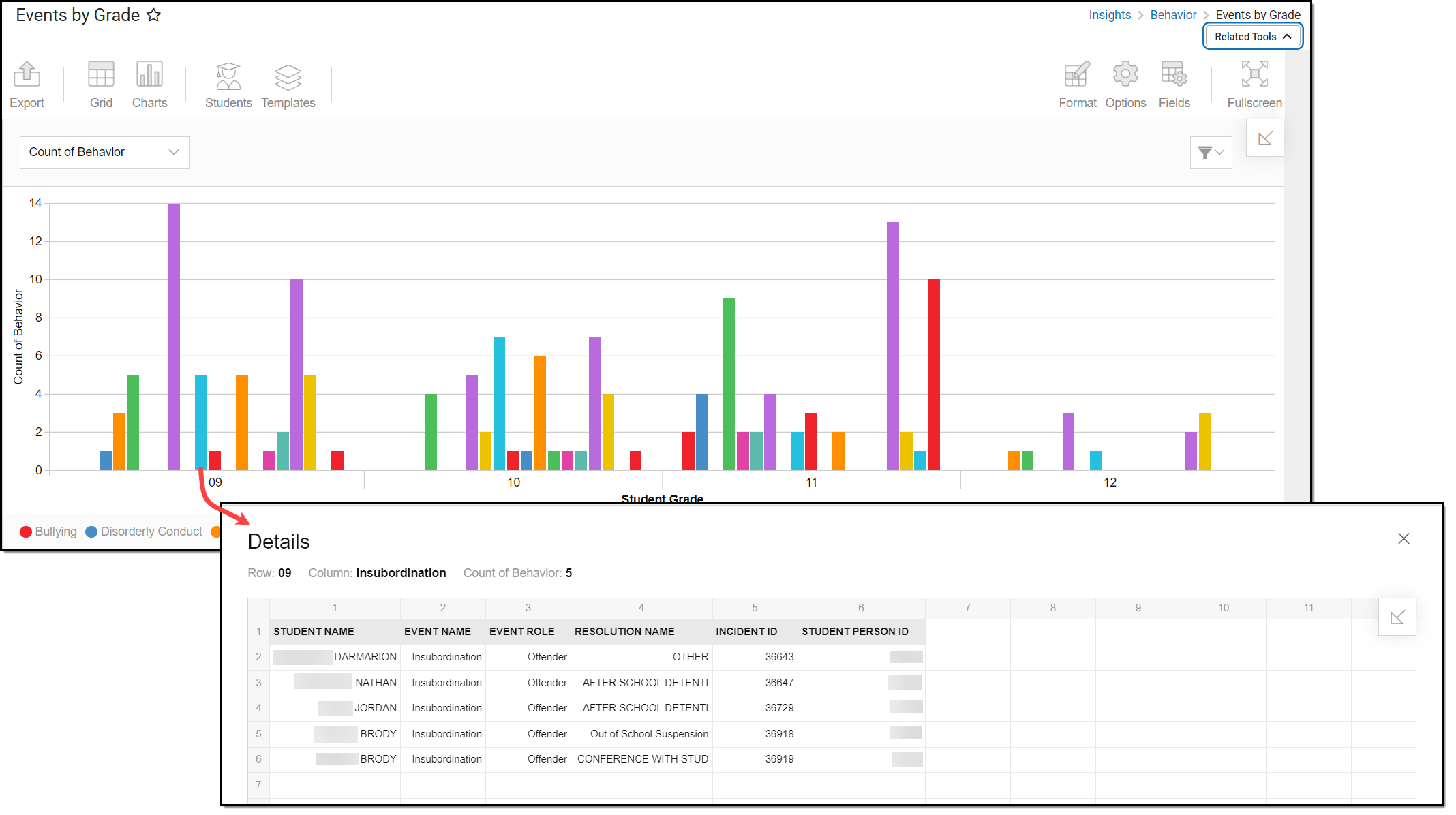
Use the table below for help in understanding each sub-report column:
| Column | Description |
|---|---|
| Student Name | The student associated with the behavior event. |
| Event Name | The name of the behavior event. |
| Event Role | The student's role in the behavior event. |
| Resolution Name | The resolution assigned to the student for the behavior event. |
| Incident ID | A unique identifier assigned to each behavior event. |
| Student Person ID | The personID for the student assigned the behavior resolution. |
Using the dropdown list shown in the image below, you can filter data to display the count of each behavior event per grade or the count of students per behavior event per grade.
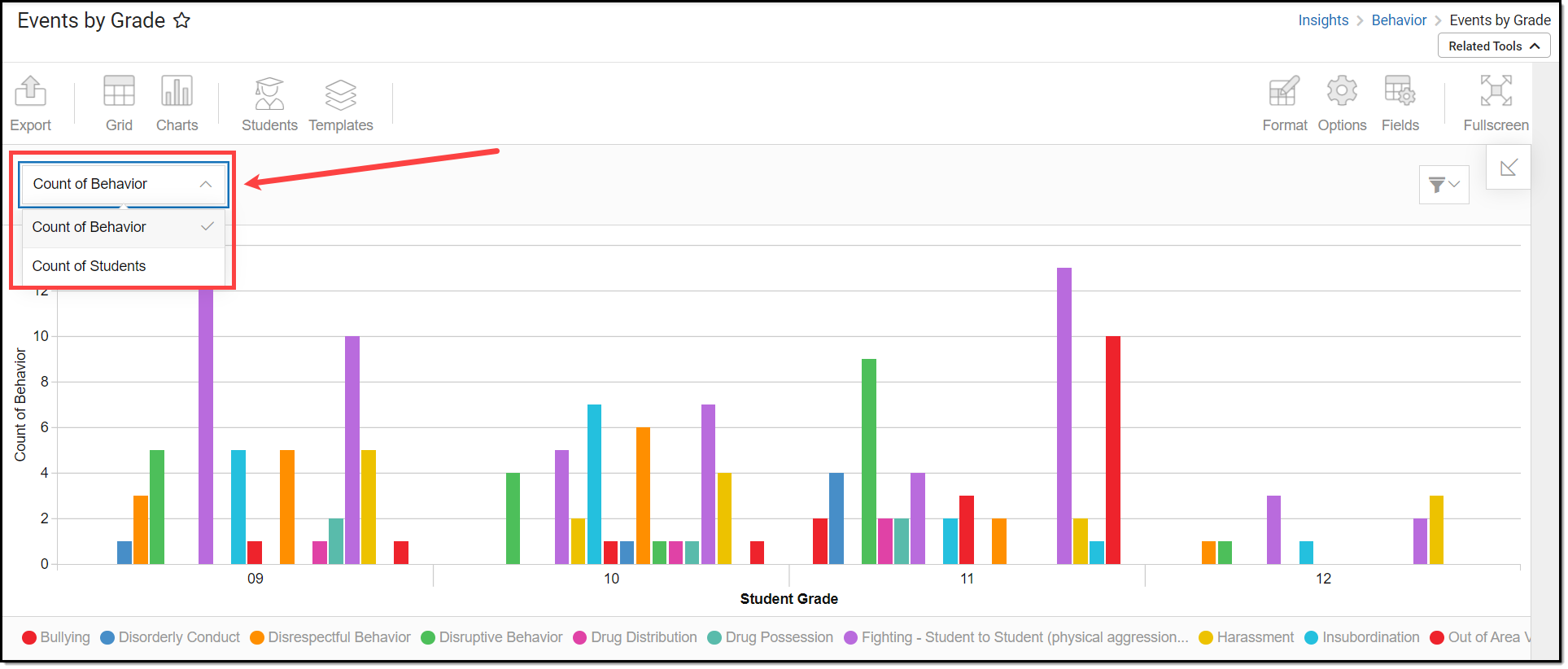
| Chart Option | Description |
|---|---|
| Count of Behavior | Displays the number of times a student was involved in a specific behavior even type per grade. |
| Count of Students | Displays the number of students involved in each behavior event type per grade level. |
You can also remove and filter any data that makes up the pie chart by clicking the  button, selecting the type of data you wish to filter, and unchecking the data you wish to remove from the chart.
button, selecting the type of data you wish to filter, and unchecking the data you wish to remove from the chart.
Filtering Chart Data
You can filter chart data to only students in your Early Warning Watchlist, Counseling Caseload, and/or a specific Student Ad Hoc filter by clicking the Students button and selecting any combination of these options.
Ad Hoc Queries and Selection Editors are supported in Insights by filtering from the Student panel.
Pass-through SQL Queries are not supported in Insights.
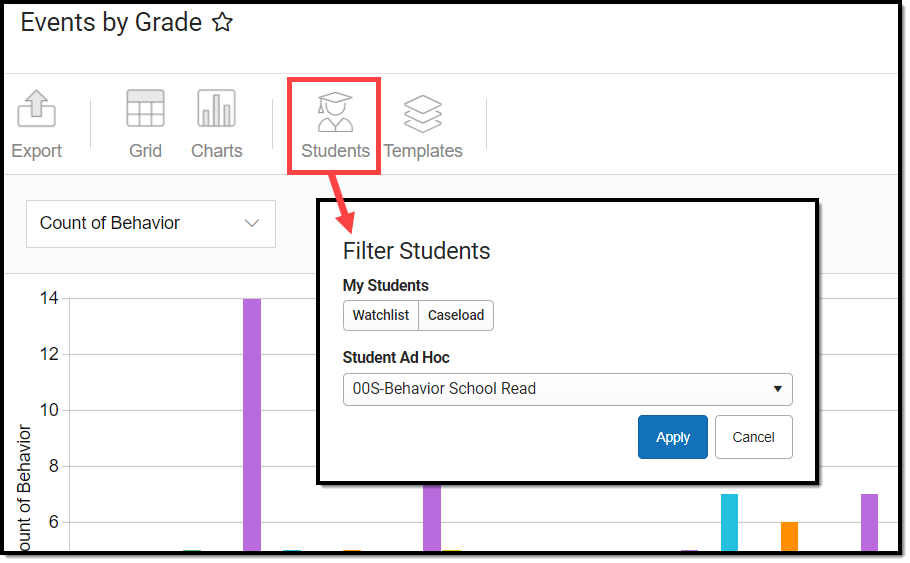
Creating Templates
Templates allow you to save all filtering and formatting options you have set for a chart and have these options automatically applied each time you select a template. Templates are chart-specific, meaning they are only available and apply to the chart for which they were created.
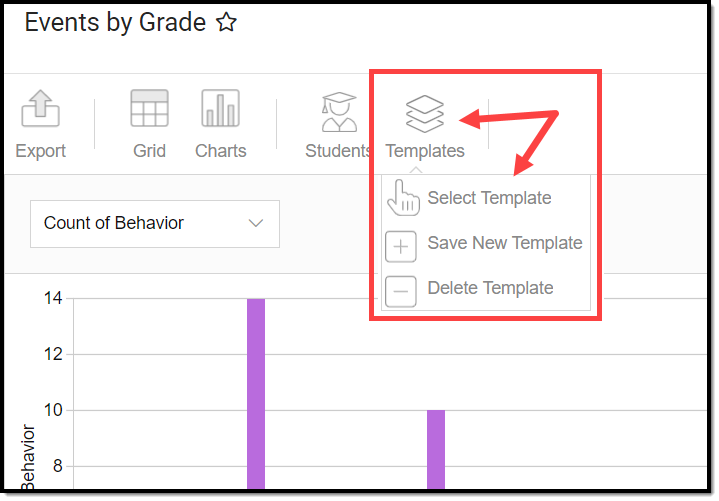
For example, if you filter the chart data by Watchlist in the Student option (see section above) and modify any formatting and field options (any options shown below), you can save all your selections as a template by clicking Templates and selecting Save New Template.
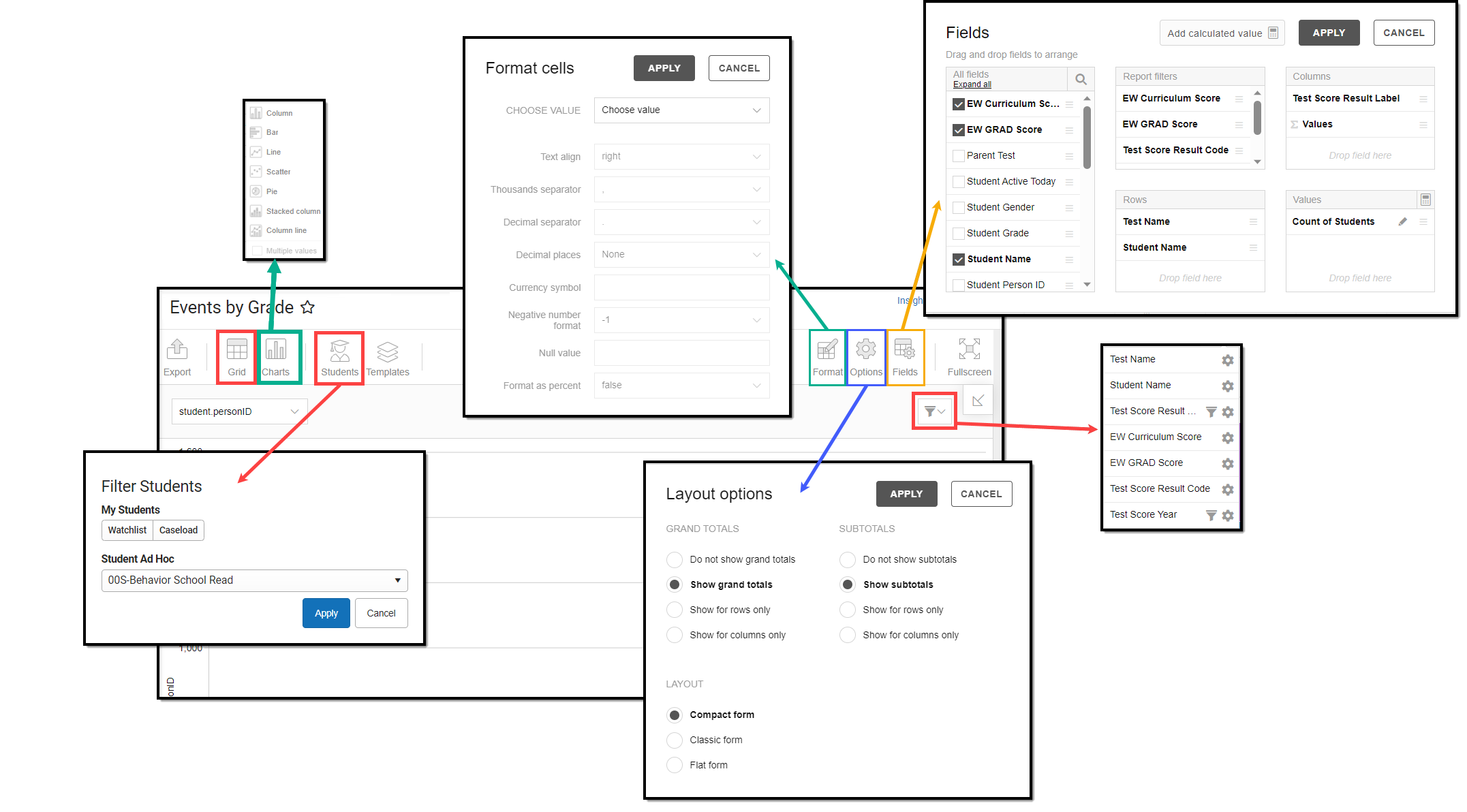
Once saved, each time you return to this chart you can automatically apply these options by clicking Select Template, choosing the template, and selecting Apply.
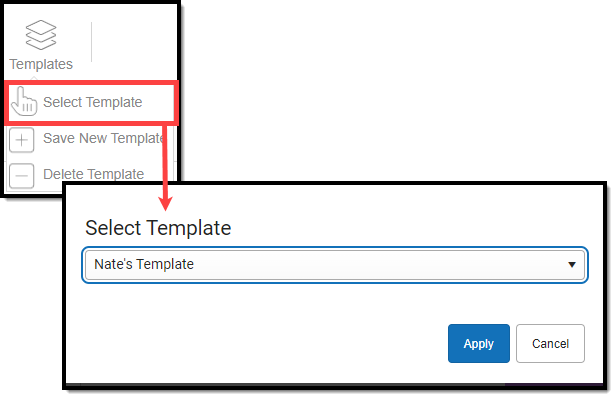
Additional Report Options
The table below provides information about the other on-screen options.
| Option | Description |
|---|---|
Grid and Chart | Report data can be viewed in a grid or other visualization charts. See this article for more information. |
Format | Format options allow you to modify how cells represent data within the report. See this article for more information. |
Options | The Options menu gives you layout options for how you would like the table to be displayed (Layout), how grand totals are displayed in the table (Grade Totals), and how subtotals should be displayed (Subtotals). See this article for more information. |
Export | The report can be exported to a number of different formats by clicking the Export icon and selecting an option. See this article for more information. |
Fields | The Fields icon allows you to modify the order of the fields in the report, add or remove fields from the report table, and modify which fields are used in rows or columns. See this article for more information. |
